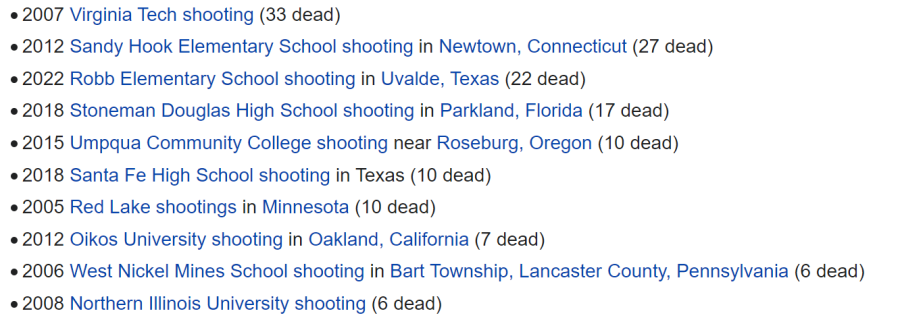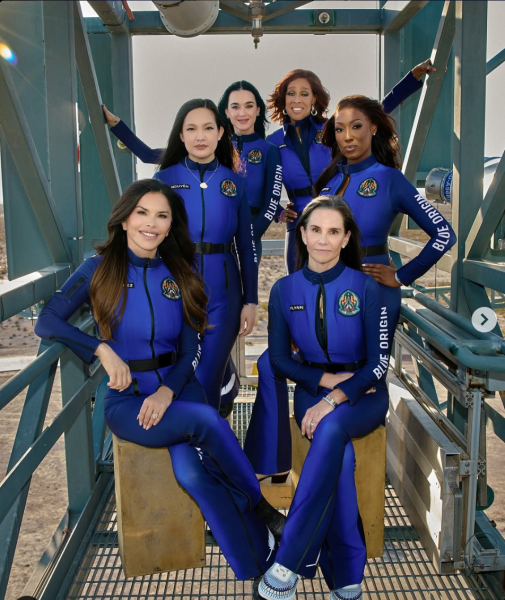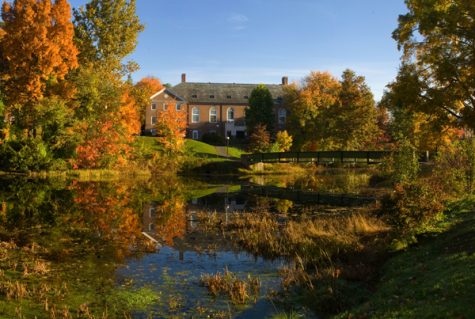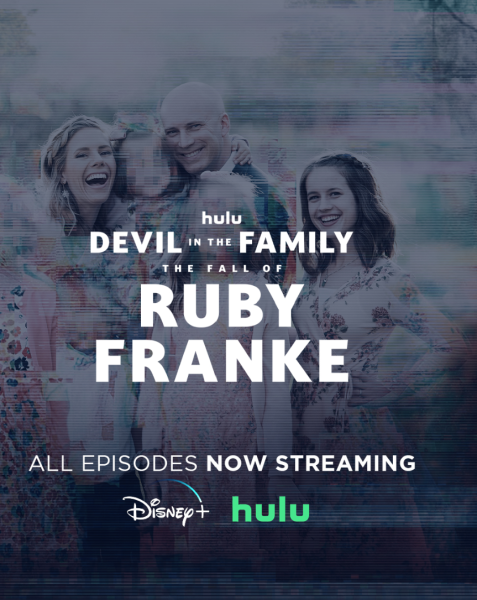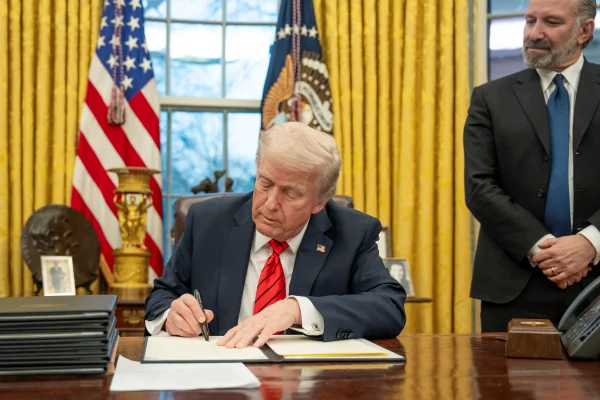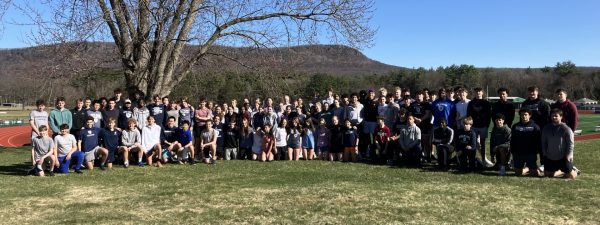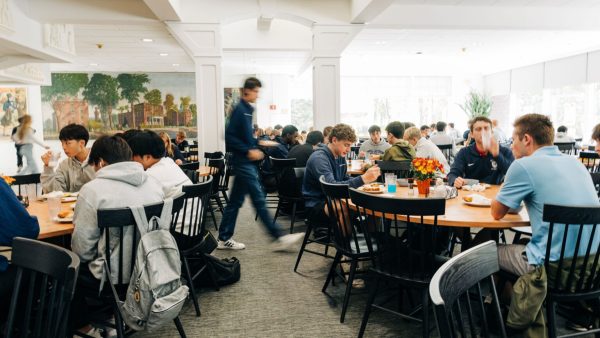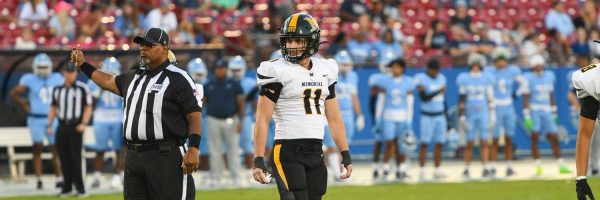More Horrific Mass Shootings and the Endless Call for Gun Reform
Following two recent major mass shootings, the U.S. government is facing growing calls to take immediate action to curb gun violence. In an American vastly divided over gun rights, however, these calls are occurring amidst a backdrop of debate over gun control, 2nd Amendment rights, and school security.
The first of the two recent mass shootings occurred on May 14, when 18-year-old Payton Gendron of Conklin, New York, opened fire on a Tops Friendly Markets Store in the predominately Black Kingsley neighborhood on the eastern side of Buffalo, New York. Leaving 10 people dead and three others injured, the shooting is the 2nd deadliest to take place so far this year.
The 10 victims of the crime include Celestine Chaney, a 65-year-old Buffalo resident and grandmother of six, Ruth Whitfield, an 86-year-old, as well as Aaron Salter Jr., a security guard who has been hailed a “hero” after he lost his life entering the line of fire while attempting to stop the shooter, according to CNN.
Investigations into the shooting revealed that Gendron had ties to white supremacy, as exposed in the suspect’s history of significant online activity from before the shooting took place.
Gendron’s posts on several social media platforms, including 4chan, an anonymous imageboard site, indicate that he promoted white supremacist conspiracy theories, including “Great Replacement Theory,” the notion that white Americans are being replaced by people of color and other minorities, according to the Los Angeles Times. Although this theory is widely disproven, it has become popular among far-right activists and conspiracy theorists.
“Replacement theory is certainly the reason why that gunman drove hours to shoot Black people while grocery shopping,” explained Lindsay Sabadosa, a State Representative who represents the 1st Hampshire District in the Massachusetts House of Representatives.
Concerns have arisen about the role that social media plays in motivating shooters, and propagating the ideas that often lead to violence. Gendron is not the only shooter to have gained inspiration from social media—countless others who ended up committing mass shootings turned to social media for inspiration when they felt isolated by those around them.
Reverend Matilda Rose Cantwell, an ordained minister and the college Chaplain at Smith College, worries social media could inspire people to commit acts of violence who wouldn’t otherwise be motivated to do so.
“Social media provides motivation, inspiration, and community around shooting, and there are whole communities that valorize it and idealize it,” Cantwell said.
Soon after the shooting in Buffalo occurred, officials identified a 180-page online manifesto published by Gendron that espoused several conspiracy theories, including Great Replacement Theory. In the manifesto, the shooter referred to African Americans as “replacers” who “invade our lands, live on our soil, attack and replace our people.”
According to New York officials, the shooting is being prosecuted as a racist hate crime.
“[This shooter was] a white supremacist who has engaged in an act of terrorism, and will be prosecuted as such,” Kathy Hochul, the governor of New York, told reporters in a May 14 press briefing. “In a cold-hearted, cruel, calculating way, [this was] a military-style execution targeting people who simply want to buy groceries in a neighborhood store—it strikes us in our very hearts to know that there is such evil that lurks out there.” Hochul is a resident of Buffalo
This shooting has sparked conversations about the pronounced presence of racism in American society, as racist hate crimes like the Buffalo shooting have been on the rise in past years. According to the FBI, the number of reported hate crimes in 2020 increased by 949 from the previous year, and hate crimes “remain a concern for communities across the country.”
Justin David, the Rabbi at the Jewish synagogue Congregation B’nai Israel in Northampton, Massachusetts, believes that the racism that fuels hate crimes like the Buffalo shooting must be dealt with on an individual level before larger issues can be addressed.
“While a lone shooter was immediately responsible [for this shooting], we are all implicated in ongoing racial violence,” Rabbi David wrote in a May 19 column for the Daily Hampshire Gazette. “While it may be deeply satisfying and cathartic to go after the injustice and violence ‘out there’ in the world, it is more … efficient to look at the racism in our midst, even though doing so is undoubtedly painful.”
The other recent mass shooting took place on May 24, when 18-year-old perpetrator Salvador Rolando Ramos entered Robb Elementary School, located in the small town of Uvalde, Texas, shooting more than two dozen people.
According to Texas officials, the shooting resulted in at least 21 casualties, with several other victims currently in the hospital in serious condition. The victims of the attack included 19 elementary school students and two schoolteachers. The shooting in Uvalde is now the deadliest mass shooting of 2022, surpassing the death toll of the Buffalo shooting which killed 10 people. It is also the second deadliest recorded elementary shooting, only behind the 2012 Sandy Hook Elementary School Shooting in Newtown, Connecticut.
The shooter, who was a resident of Uvalde, carried out the attack using an AR-15 style rifle which he legally purchased in the state of Texas soon after his 18th birthday. Assault weapons like the AR-15 have been used in many other mass shootings, due to their high-speed and high-ammunition capacities. Many have criticized the sale of these guns, with some states banning the sale of them altogether. On the other hand, some have condemned full bans of assault weapons, claiming that the bans infringe upon their 2nd Amendment rights to possess firearms.
Sabadosa believes that the 2nd Amendment does not protect the right to assault weapons, and thinks that banning these weapons would be a helpful step in preventing mass shootings in the future.
“People should remember that when the 2nd Amendment was written, there were muskets that took significant time to reload—people weren’t walking into school buildings and shooting hundreds of rounds of bullets at children. I think the framers of the Constitution believed in common sense,” Sabadosa said. “So one, they have the right to a weapon, and I certainly think that people who want to hunt should be able to own a rifle, but they’re not using these high-capacity, high-powered weapons, that are really intended only to kill lots of people very quickly. There is a difference.”
Sabadosa, although frustrated with a lack of progress on preventing gun violence, hopes that elected officials will take the steps necessary to prevent future mass shootings.
“Like everyone, I have been horrified to see that things like this are still happening, and these are just another two in a long thread. It’s frustrating to think that not much has been done to prevent this,” she said. “I hope that [progress] starts on a state-by-state level … unless our federal government or other states are willing to step up, we are going to keep seeing these mass shootings occur. But it is going to take a miracle.”
Olin Rose-Bardawil is a senior from Northampton, MA who has written for the Willistonian since 2021 and has served as its editor-in-chief since 2023. In...



